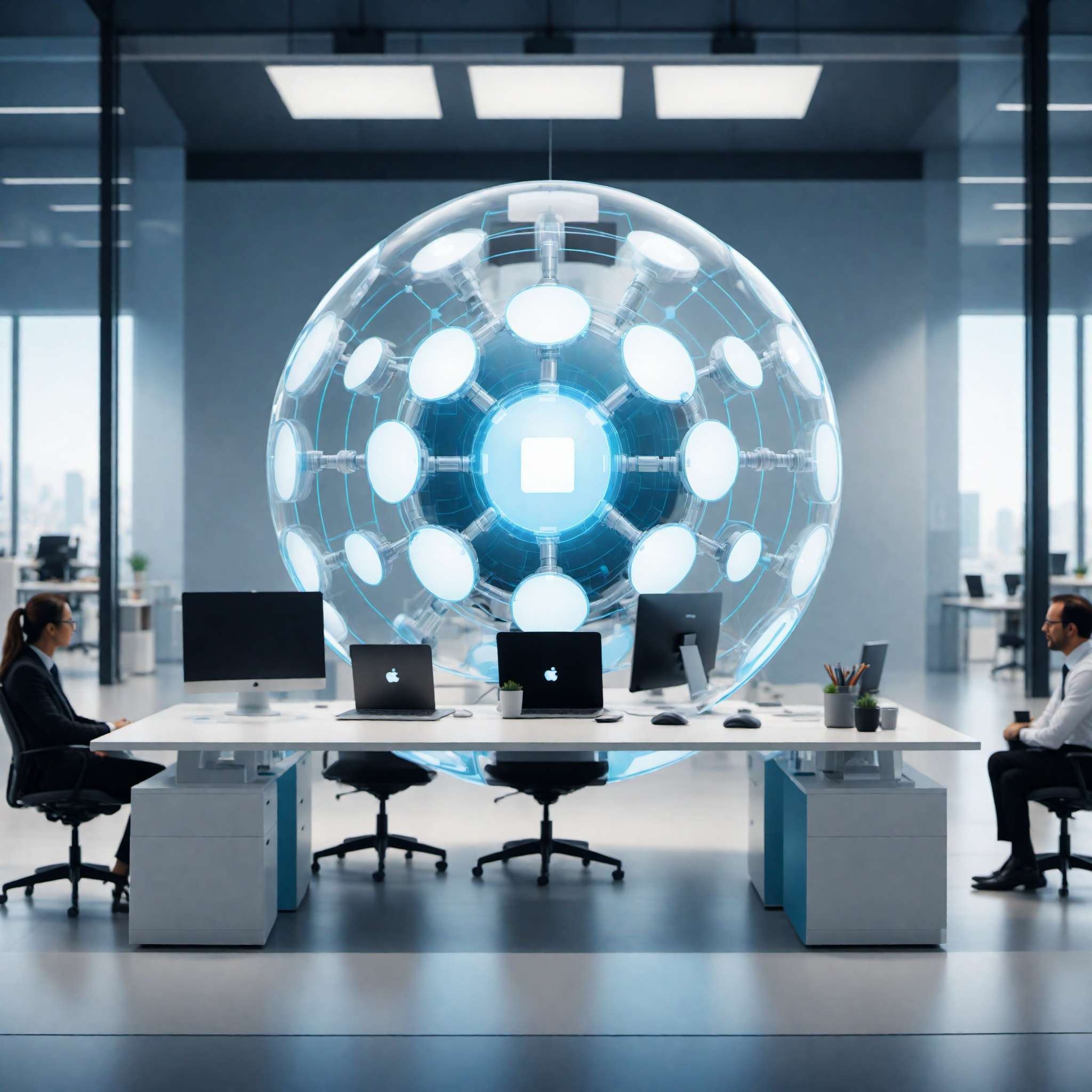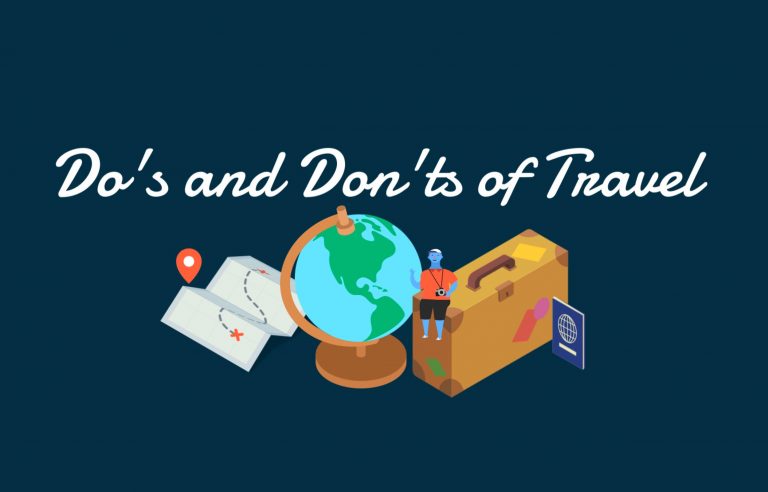Zombie Bunny is Reader-supported and may earn an affiliate commission through links on our site.

AI and Job Security: Your Plan B
Explore the transformative effect of AI on the job market and learn how to secure your future in our latest blog post about AI and job security.
Embrace the future of work in the AI era with our latest blog, where we explore how AI is reshaping the job market. From job displacement to the creation of new roles, AI’s impact on various industries is profound. Yet, the key to navigating this rapidly evolving landscape lies in adaptability, continuous learning, and the willingness to pivot in your career. Discover how to future-proof your career, from upskilling and reskilling strategies to exploring AI-resistant jobs. Learn how to transform the potential threat of AI into opportunities for career growth and secure your place in the future workforce.
Introduction: AI and Job Security

© Copyright , ZombieBunny.Org
Overview of the AI’s impact on job security
The advent of Artificial Intelligence (AI) has revolutionized the job market, compelling us to rethink our career strategies. The rapid advancement of AI technologies has raised questions about job security, as machines are increasingly capable of performing tasks previously done by humans. While AI brings numerous benefits such as increased efficiency and precision, it also brings potential challenges – the most pressing being the threat to job security.
An understanding of AI’s impact is crucial for future-proofing our careers. AI’s influence is pervasive, affecting a broad spectrum of industries from manufacturing to customer service, and even creative fields like journalism and art. The potential of AI to automate routine tasks can lead to job displacement, causing uncertainty and anxiety among the workforce. However, with the right preparation and adaptability, we can navigate this rapidly evolving landscape and turn AI-induced challenges into opportunities.
The rapid evolution of AI technology
Artificial Intelligence has evolved exponentially over the past few decades, transitioning from a fascinating concept to a tangible reality. It has permeated every aspect of our lives, from virtual assistants on our smartphones to sophisticated algorithms driving business decisions. This rapid evolution of AI technology has triggered significant shifts within the job market.
AI’s evolution is characterized by its increasing ability to mimic human intelligence. Machine learning algorithms are now capable of learning from experience, improving their performance without explicit programming. This has enabled AI to handle complex tasks, often surpassing human accuracy. While this rapid advancement fuels fears of job displacement, it’s essential to remember that AI’s evolution also brings about a plethora of new jobs and opportunities. By staying abreast of AI developments and adapting our skillsets, we can leverage AI technology’s evolution to our advantage, ensuring our job security in this dynamic landscape.
How AI is influencing the future workforce
Artificial Intelligence is shaping the future workforce in profound ways. The increasing adoption of AI across industries has made it a pivotal part of the job market. AI’s influence is dual-faceted. On one hand, it automates repetitive tasks, potentially leading to job displacement. On the other hand, it creates new job roles that didn’t exist a decade ago, such as AI ethics officers and data scientists.
AI’s influence isn’t just about job creation or displacement; it’s also about how work is done. AI technologies, like machine learning and natural language processing, are augmenting human capabilities, enabling us to work smarter and more efficiently. They are redefining job roles, pushing the workforce towards more strategic and creative tasks. While AI’s influence may seem daunting, it presents an opportunity for us. By embracing AI and adapting our skillsets, we can shape a future workforce that leverages AI to its full potential, ensuring our place within it.
Section 1: Understanding AI’s Role in Job Displacement

© Copyright , ZombieBunny.Org
Facing the reality: AI and job displacement
As we navigate the digital era, it’s essential to face the reality of job displacement caused by Artificial Intelligence. AI’s potential to automate routine tasks can lead to job losses, especially in sectors heavily reliant on manual or repetitive work. From manufacturing lines to customer service call centers, AI’s role in job displacement is becoming increasingly evident.
However, it’s crucial not to view AI as a job destroyer, but rather as a job transformer. While AI does indeed automate certain tasks, it also creates new roles and opportunities. It’s a shift in the job landscape, not an eradication. The challenge lies in adapting to this shift, in reskilling and upskilling to meet the new demands of the AI-impacted job market. By facing the reality of AI-induced job displacement, we can better prepare ourselves for the future, ensuring our relevance and security in the evolving workforce.
How different industry sectors are affected by AI
Artificial Intelligence’s impact is not uniform across all industry sectors; it varies depending on the nature of the work involved. For instance, sectors with high levels of manual and repetitive work like manufacturing and transportation are more susceptible to AI-induced job displacement. AI-powered robots and autonomous vehicles in these sectors can perform tasks more efficiently, posing a significant threat to job security.
Conversely, sectors that require complex problem-solving, creativity, and human interaction, such as healthcare, education, and the arts, are less vulnerable to AI disruption. In these sectors, AI often plays a supportive role, augmenting human capabilities rather than replacing them. It’s critical to note that while AI may transform job roles within these sectors, it doesn’t necessarily eliminate them. By understanding how AI affects different industry sectors, we can make more informed career choices, ensuring our job security in the AI-impacted job market.
Real-world examples of AI-induced job loss
Real-world examples of AI-induced job loss are not hard to find. One of the most prominent cases is in the manufacturing sector. With the advent of AI-powered robots, manual labor jobs have been significantly reduced. Companies like Foxconn, a major assembler for Apple and Samsung, have replaced thousands of workers with robots for efficiency and cost-saving purposes.
In the retail sector, Amazon’s automated warehouses and cashier-less stores serve as stark examples of how AI can displace jobs. Similarly, the transportation sector faces potential disruption with the advent of self-driving cars and trucks, threatening the jobs of millions of drivers. These examples highlight the tangible threat that AI poses to certain job roles.
However, it’s vital to remember that these examples also represent a shift in the types of jobs that are in demand. As AI takes over certain tasks, new roles are emerging that require human skills, offering opportunities for those ready to adapt.
Section 2: Your Plan B – Upskilling and Reskilling

© Copyright , ZombieBunny.Org
The importance of upskilling and reskilling in the AI era
In the AI era, upskilling and reskilling have become essential for maintaining job security. As AI continues to transform the job landscape, simply relying on existing skill sets may not suffice. The jobs of the future will require new skills – many of which are driven by advancements in AI.
Upskilling and reskilling provide a pathway to adapt to these changes. Upskilling involves learning new skills to enhance your current job role, while reskilling involves acquiring new skills for a different job. For instance, a customer service representative might upskill by learning to use AI-powered customer service tools, or reskill to become a customer data analyst.
By continually upskilling and reskilling, we can stay relevant in the evolving job market, taking advantage of the opportunities AI brings rather than becoming victims of its disruptive impact. It’s our proactive response to AI’s challenge, a fundamental part of our Plan B for job security.
Exploring AI-resistant jobs and future-proof careers
In the face of AI’s disruptive impact, it’s worth exploring AI-resistant jobs and future-proof careers. These are roles less likely to be automated due to their reliance on human skills, such as emotional intelligence, creativity, and complex problem-solving.
Healthcare professions, for instance, are considered relatively AI-resistant. While AI can diagnose diseases and suggest treatments, the human touch needed for patient care is irreplaceable. Similarly, jobs in the creative industry, such as artists, writers, and designers, are less susceptible to AI as they require originality and creativity that AI currently cannot replicate.
Moreover, new job roles are emerging in response to AI’s advancement, like AI ethicists and data analysts, creating future-proof careers. Exploring these AI-resistant jobs and future-proof careers not only provides a sense of security but also opens up exciting new avenues for professional growth in the AI era. Hence, it’s a vital component of your Plan B for job security.
How to build your AI resilience through professional development
Building AI resilience is a crucial part of professional development in the AI era. It involves nurturing a mindset and skillset that enables you to adapt and thrive amidst AI-driven changes. This includes upskilling and reskilling, but it goes beyond that.
AI resilience also involves understanding the basics of AI and its implications for your industry. This knowledge can help you anticipate changes and prepare for them. Online courses, webinars, and workshops are excellent resources for learning about AI and related technologies.
Moreover, embracing lifelong learning is vital. As AI continues to evolve, so should our skills and knowledge. Networking within professional communities can also build AI resilience, allowing you to share insights and learn from others’ experiences.
By investing in professional development, you can build your AI resilience, making you not just survivable, but also thrive in the AI-impacted job market. It’s a proactive approach to securing your job in the AI era.
Section 3: Embracing AI – Opportunities and Challenges

© Copyright , ZombieBunny.Org
How AI is creating new career opportunities
While it’s true that AI’s rise is automating certain jobs, it’s equally important to recognize that AI is creating new career opportunities. These roles didn’t exist a few years ago, but are now in high demand due to AI’s advancement. For instance, jobs related to AI development, like machine learning engineers and data scientists, are rapidly burgeoning.
Furthermore, roles are emerging around the ethical and societal implications of AI, such as AI ethicists who ensure that AI technologies are developed and used responsibly. Even within traditional job roles, AI is creating opportunities for those who can leverage it to enhance their work, such as marketers using AI for personalized campaigns.
Moreover, AI’s ability to handle routine tasks allows humans to focus on higher-level work, creating opportunities for more strategic and creative roles. By recognizing and seizing these opportunities, we can turn AI from a threat into an ally for job security.
The challenges and benefits of embracing AI
Embracing AI in our careers comes with both challenges and benefits. One of the significant challenges is the need for constant learning and adaptation. As AI technologies evolve rapidly, staying abreast of the latest developments and learning new skills can be demanding. Additionally, there’s the challenge of uncertainty, as it’s not always clear which jobs AI will transform or create in the future.
Despite these challenges, the benefits of embracing AI are substantial. AI can enhance our work by automating routine tasks, freeing us to focus on more strategic and creative aspects of our jobs. It can also provide us with valuable tools to increase our efficiency and effectiveness. Moreover, by embracing AI, we position ourselves at the forefront of our fields, opening up exciting new career opportunities.
Thus, while embracing AI presents challenges, the potential benefits make it a worthwhile endeavor for securing our jobs in the AI era.
The evolution of job market with AI adoption
The job market is evolving with the adoption of Artificial Intelligence, reshaping roles across various industries. The impact of AI isn’t confined to job displacement; it’s also about job transformation and creation. As AI takes over routine tasks, jobs are shifting towards more strategic, creative, and empathetic roles – aspects that AI currently cannot emulate.
Furthermore, AI adoption is creating new job categories. Roles centred around AI development, data analysis, AI ethics, and AI integration in business are on the rise. These roles require a blend of technical skills and soft skills, reflecting the evolving demands of the job market.
The job market’s evolution with AI adoption may seem daunting, but it is also filled with opportunities. By staying informed, continuously learning, and adapting our skills, we can navigate this evolution, ensuring our place in the AI-impacted job market. Embracing this evolution is a key aspect of our Plan B for job security.
Conclusion: Navigating the AI-impacted Job Market

© Copyright , ZombieBunny.Org
How to navigate the AI-impacted job market
Navigating the AI-impacted job market requires a proactive and adaptive approach. It’s about understanding the changes AI is bringing and preparing ourselves to meet those changes. This involves staying informed about AI developments, understanding its implications for our industry, and identifying the skills we need to stay relevant.
Upskilling and reskilling are key strategies for navigating the AI-impacted job market. As AI transforms jobs, we need to enhance our existing skills and acquire new ones. This might involve learning about AI and related technologies, improving our data literacy, or developing soft skills like problem-solving and creativity that AI cannot replicate.
Moreover, embracing lifelong learning and being open to change are crucial. The AI-impacted job market is dynamic, and we need to be too. By adopting this proactive and adaptive approach, we can navigate the AI-impacted job market, ensuring our job security in the AI era.
Strategies to secure job in the AI era
Securing a job in the AI era requires strategic planning and action. One effective strategy is to focus on developing skills that are in high demand in the AI-impacted job market. This includes technical skills related to AI and data analysis, as well as soft skills like problem-solving, creativity, and emotional intelligence that are less susceptible to AI automation.
Another strategy is to explore AI-resistant jobs and future-proof careers. These are roles that are less likely to be automated and are expected to remain in demand in the future. Exploring these jobs can provide a sense of security and direction in the AI-impacted job market.
Moreover, adopting a lifelong learning mindset is crucial. As AI continues to evolve, we need to continually update our skills and knowledge. By implementing these strategies, we can secure our jobs in the AI era, turning AI’s potential threat into an opportunity for career growth.
The future of work: Embracing adaptability
The future of work in the AI era is marked by a critical skill: adaptability. As AI continues to transform the job landscape, our ability to adapt will determine our success. Adaptability in the AI-impacted job market involves being open to learning new skills, embracing new technologies, and being willing to pivot in our careers when necessary.
Adaptability also means being proactive. Instead of waiting for changes to happen, we need to anticipate them and prepare ourselves accordingly. This might involve taking online courses to learn about AI, attending workshops to improve our data literacy, or seeking out mentors in AI-related fields.
Moreover, adaptability is about resilience. It’s about facing the uncertainties of the AI-impacted job market with confidence, knowing that we have the skills and mindset to navigate the changes. By embracing adaptability, we can shape the future of work on our terms, ensuring our job security in the AI era.
Please support our site and purchase something from our store.







